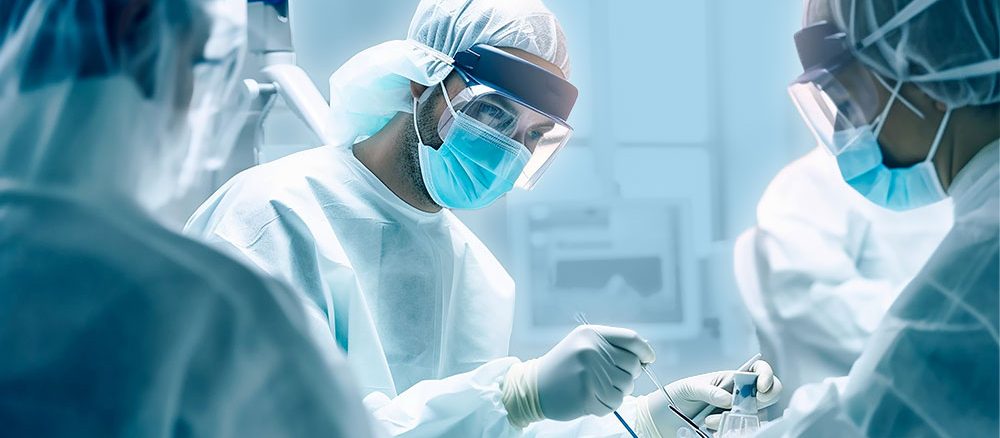Why Specialization Matters: The Role of an Oral & Maxillofacial Surgeon vs. General Dentist
When it comes to your oral health, it is important to know the difference between a general dentist and an oral & maxillofacial surgeon, and when to see each professional. Both play crucial roles in maintaining your oral health, but they have different areas of expertise and training. At Argyle Associates in Ottawa, we specialize in oral & maxillofacial procedures, and this blog post will explain why specialization matters and the differences between an oral & maxillofacial surgeon and a general dentist.
Understanding the Difference
General Dentist
A general dentist is a primary care dental provider who diagnoses and treats common dental issues such as cavities, gum disease, and simple tooth extractions. General dentists provide preventive care and education to help maintain good oral health. They are skilled in performing a variety of dental procedures, such as fillings, cleanings, crowns, and bridges.
Oral & Maxillofacial Surgeon
An oral & maxillofacial surgeon is a dental specialist who has completed additional years of training in the diagnosis and surgical treatment of diseases, injuries, and defects affecting the mouth, jaws, face, and neck. They are trained to perform complex surgical procedures such as dental implant surgery, corrective jaw surgery, and treatment of facial injuries and oral cancer.
Why Specialization Matters
Expertise in Complex Procedures
Oral & maxillofacial surgeons have specialized training and experience in performing complex surgical procedures that general dentists may not be qualified to perform. For example, dental implant surgery requires precise planning and surgical skill to ensure the best possible outcome. An oral & maxillofacial surgeon has the expertise and experience to handle complications that may arise during surgery and ensure a successful outcome.
Comprehensive Care
Oral & maxillofacial surgeons are trained to provide comprehensive care for a wide range of conditions affecting the mouth, jaws, face, and neck. They can diagnose and treat complex cases that may involve multiple procedures and require coordination with other healthcare providers. For example, treatment of oral cancer may involve surgery to remove the tumor, reconstruction of the affected area, and coordination with other specialists for radiation therapy or chemotherapy.
Advanced Technology
Oral & maxillofacial surgeons use advanced technology and techniques to provide the highest level of care. For example, they may use 3D imaging and computer-guided surgery to plan and perform dental implant surgery with precision and accuracy.
When to See an Oral & Maxillofacial Surgeon
Dental Implants
If you are missing one or more teeth, dental implants may be a good option for you. Dental implants are artificial tooth roots that are surgically implanted into the jawbone to replace missing teeth. An oral & maxillofacial surgeon has the specialized training and experience to perform dental implant surgery and ensure a successful outcome.
Corrective Jaw Surgery
Corrective jaw surgery, or orthognathic surgery, is performed to correct irregularities of the jawbones and realign the jaws and teeth to improve facial appearance and function. Therefore, if you have a misaligned bite or facial asymmetry that cannot be corrected with orthodontics alone, you may be a candidate for corrective jaw surgery. Importantly, an oral & maxillofacial surgeon has the expertise and experience to perform this complex procedure.
Facial Injuries
Oral & maxillofacial surgeons are skilled in the treatment of facial injuries, including fractures of the jaw, cheekbones, and eye sockets, as well as soft tissue injuries of the mouth, face, and neck. In case you have sustained a facial injury, it’s important to note that an oral & maxillofacial surgeon can provide comprehensive care to restore function and appearance.
Oral Cancer
Oral & maxillofacial surgeons play a crucial role in the diagnosis and treatment of oral cancer. They may perform biopsies, remove tumors, and perform reconstructive surgery to restore function and appearance.
While both general dentists and oral & maxillofacial surgeons play crucial roles in maintaining your oral health, there are important differences in their training and areas of expertise. If you require complex surgical procedures or have conditions affecting the mouth, jaws, face, or neck, an oral & maxillofacial surgeon may be the best professional to provide your care. Therefore, at Argyle Associates in Ottawa, our skilled surgeons are here to help you achieve the best possible outcome. Feel free to contact us today to schedule a consultation.
Frequently Asked Questions
- Can a general dentist perform oral surgery?
While general dentists are trained to perform some minor oral surgical procedures, such as simple tooth extractions, they may not have the specialized training and experience to perform more complex procedures. It is important to consult with an oral & maxillofacial surgeon for complex surgical procedures or conditions affecting the mouth, jaws, face, or neck. - Do I need a referral to see an oral & maxillofacial surgeon?
While a referral from a general dentist may be helpful, it is not always necessary to see an oral & maxillofacial surgeon. If you believe you may benefit from the services of an oral & maxillofacial surgeon, you can contact Argyle Associates directly to schedule a consultation. - Will my insurance cover the cost of oral & maxillofacial surgery?
Insurance coverage for oral & maxillofacial procedures varies depending on your insurance plan and the type of procedure being performed. Some procedures may be covered by medical insurance, while others may be covered by dental insurance. Our staff at Argyle Associates will help you understand your insurance coverage and provide you with an estimated cost of the procedure. - Where are you located?
Argyle Associates has four convenient locations to serve our patients in the Ottawa area. We have offices in Orleans, Barrhaven, Kanata, and on Carling Avenue in Ottawa. This allows us to provide comprehensive oral and maxillofacial surgical care to patients across the region.

